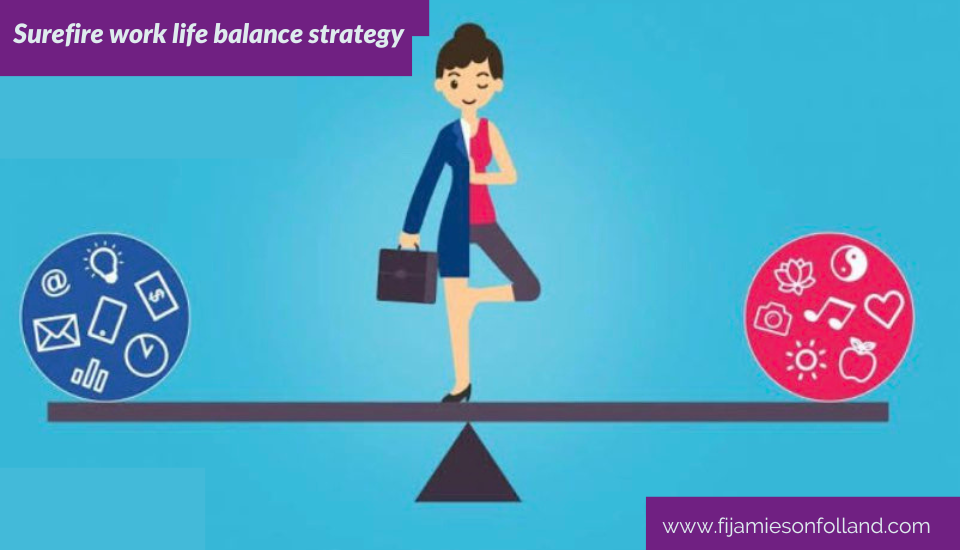Work-life balance strategy
This is, quite simply, essential for a productive and healthy lifestyle. However, what that balance looks like is different for everyone and figuring out how to achieve a personal balance can be a conundrum.
To make matters more tricky, the type of work each of us do and where we decide to work can have a large impact on our overall health.
We’ll explore the concept of work-life balance and how working from home can potentially lead to improved health.
Is my work bad for my health?
When considering work-life balance, it’s important to consider the various types of work that are available. Depending on the individual, they may decide to pursue full-time, part-time, freelance, or contract work.
Each of these options can present challenges related to job security, workload, and even our physical environment.
Those who are full-time employed may find themselves struggling to balance their work and life responsibilities due to large workloads or long hours.
Freelancers and contractors may find themselves cycling through multiple contracts with no guarantee that the next one will be successful.
The type of work an individual does also affects their overall health.
For example, research has indicated that individuals with full-time, desk-based jobs are more prone to experience various physical and mental health issues like increased rates of obesity, neck and back problems, and even depression (Zou et al., 2019).
In contrast, manual labour like gardening can have beneficial physical and mental effects like increased aerobic fitness, reduced stress, and improved cognitive functioning (Long et al., 2018).
Unfortunately, the traditional physical workplace environment can be a potential source of health risks. Those of us who work in structurally safe buildings may still be subject to poor ventilation, exposure to pollutants, and artificial lighting which can lead to a variety of ailments like headaches and dry eyes (Balsamo & Piccinelli, 2009).
Plus working in an overcrowded environment can increase the risk of infectious illnesses (Itani & Ragab, 2017).
Is working from home a healthy option?
Fortunately, working from home can provide a potential solution to these health risks.
Research has suggested that working from home may result in improved productivity, less stress, and even a decrease in absenteeism due to a decrease in the potential for infectious illness (Von Bergen et al., 2017).
In addition, working from home can provide us with the ability to establish an ergonomically healthy workspace plus the flexibility of hours and work intensity.
This can lead to our improved physical and mental health due to reduced stress and improved work-life balance (Allard & Asseburg, 2018), as well as being potential solution to traditional health risks associated with physical workplace environments.
Therefore, when we’re considering our health, it’s important to take into account the type of work we decide to pursue as well as where we work.
How do I achieve work life balance?
We all know that working a full-time job that’s not beneficial to our physical and mental health can significantly reduce our quality of life. While quitting a job can be a drastic and daunting prospect, it’s important for us to remember that there are other options – even if that may not seem obvious initially.
Putting an hour a day into a side hustle which can help to increase passive income is surprisingly do-able.
By continuing with what we’re already doing and simply adding in a few hours a week, this extra income can help us reduce or even stop a full-time job and begin to focus on other interests outside of work. I call this ‘getting our lives back’.
Side hustle – work life balance benefits
Working a side hustle can provide us with a variety of benefits, from providing both immediate and long-term financial stability, plus the opportunity to work on projects that are more enjoyable and provide more rewards than a full-time job – to giving us a sense of accomplishment and control as we’re taking initiative to improve our lives.
Although don’t be faked out – setting up a successful side hustle requires focus and dedication. Starting with deciding what direction you want to take your side hustle in. Next best step is to research everything you need to get set up. The ideal situation is if your side hustle already has training from experienced operators and a system that you can follow.
Separating your hours of side hustle work from your hours of full or part-time work so that you have a clear division between the two is another wise step.
With dedication and hard work, it really is possible to turn your side hustle into a viable, reliable, successful reality.
Working towards work life balance with a few hours a week
If it’s not possible to quit your full-time job, or you enjoy it however you could do with some extra income, you may still be able to take advantage of the benefits of working a side hustle.
Depending on your situation, you may be able to focus on your side hustle during your free time to reduce your hours at the full-time job. This time is then free for family and fun-time.
By simply dedicating an hour a day to a side hustle, we can increase our passive income and provide the potential to reduce or stop a full-time job. Ultimately, a successful side hustle can help us strike a better work-life balance and improve our quality of life.
Passive income and it’s role in work-life balance
For those of us working full time jobs that aren’t great for our health, supplementing our income with a passive income stream can provide a number of potential benefits.
Passive income is a type of income that’s earned without the requirement of further investment of time or energy once it’s set up.
This could include income generated from investments, real estate, royalties from intellectual property or specific side hustles which have a passive income element.
A successful passive income stream can help to increase financial stability and security, which can also lead to improved health outcomes. Research has suggested that increased financial stability can lead to improved physical and mental health, with people reporting better levels of overall wellbeing and psychological functioning (Mosely et al., 2018).
This is likely linked to having the resources to buy healthier food, engage in preventative healthcare, and take the time and space to address potential mental health issues.
A passive income stream can also increase the potential for financial independence. This can be ideal if wanting to reduce dependence on traditional full-time employment and be more self-directive, providing the opportunity to pursue alternative work paths and increase levels of self-efficacy and productivity.
In fact, research has suggested that individuals who increased their financial security by engaging in freelance work reported increased levels of self-efficacy and productivity (Hoffman et al., 2019).
Is leveraged passive income the ultimate work life balance strategy?
Working with a team and leveraging your time provides you with an opportunity to exponentially increase your income and financial stability. Once again, this, in turn, can improve your health and wellbeing.
A recent US study on stress showed that the level of financial stability was the biggest predictor of stress. The more financially secure a person is, the less stressful their lives were. 1 plus 2
Also working with a team allows you to focus on an aspect of your side hustle that you find meaningful and enjoyable and allowing others to work and find meaning in the areas they gravitate to as well. This way, your work becomes more rewarding and your productivity is maximised. When we combine this type of leveraged income with a passive income, we get to create even greater financial stability and the space to live our lives with more joy.
As we all know, plus research consistently suggests that stress, which is often caused by financial concerns, affects our mental and physical health outcomes. So it follows that financial security can provide us with greater peace of mind and the window to focus on activities which can enhance our well-being.
Work life balance conclusion
Having a team and leveraging your time can help you to increase your financial stability while allowing you to focus on aspects of your side hustle that are more meaningful and enjoyable.
Combining this with passive income can help to further improve your financial security and therefore your mental and physical health.
If there are any areas we’ve covered here that you’d like to discuss, please feel free to contact me – it’s always great to hear from you =)
Fi Jamieson-Folland D.O., I.N.H.C., is The LifeStyle Aligner. She’s an experienced practitioner since 1992 in Europe, Asia and New Zealand as a qualified Osteopath, Integrative Nutrition Health Coach, speaker, educator, writer, certified raw vegan gluten-free chef, and Health Brand Ambassador.

Facebook Instagram LinkedIn Pinterest YouTube
References –
1. Mosely, A. L., Robinson, G. E., Skillman, S. M., & Bishop, D. M. (2018). Financial insecurity and health outcomes: Longitudinal evidence from the US. Journal of Epidemiology and Community Health, 72(5), 435–441. https://jech.bmj.com/content/72/5/435
2. ‘Relationships between Financial Security, Stress, and Well-Being’, published in the journal of Stress, Trauma, & Crisis in 2019 https://www.tandfonline.com/doi/abs/10.1080/15732479.2019.1605610.
Zou, Y., Cheung, W., Tang, Z., Bu, Y., Fang, B., & Wu, T. (2019). The Impact on Work–Life Balance on Mental and Physical Health: A Systematic Review of Longitudinal Studies. PLoS ONE, 14(10), e0223090.
https://journals.plos.org/plosone/article?id=10.1371/journal.pone.0223090
Long, H., Liu, Y., Stratton, G., & Bukkens, S. G. P. (2018). Gardening is associated with better cognitive function, regardless of its intensity level: Evidence from a nationally representative study. International Journal of Environmental Research and Public Health, 15(4), 700. https://www.ncbi.nlm.nih.gov/pmc/articles/PMC5990681/
Balsamo, S. M., & Piccinelli, M. (2009). Environmental Illness: Etiology, Diagnosis and Management. Nova Science Publishers. https://books.google.com/books?hl=en&lr=&id=_WAxDwAAQBAJ&oi=fnd&pg=PP1&dq=Environmental+Illness:+Etiology,+Diagnosis+and+Management&ots=qYTwRkPXKH&sig=j4l18ochMUl9fWWyKpmFqblG8ts#v=onepage&q=Environmental%20Illness%3A%20Etiology%2C%20Diagnosis%20and%20Management&f=false
Itani, S., & Ragab, H. (2017). Role of Working Environment on Occupational Health. International Journal of Current Research, 9(12). http://www.journalcra.com/article/role-of-working-environment-on-the-occupational-health-review
Von Bergen, C., Greene, M., Flynn, P., Schwartz, N., & Summers, T. (2017). Working From Home: A Systematic Review and Meta-Analysis. Small Business Institute Journal, 13(1). https://uwspace.uwaterloo.ca/bitstream/handle/10012/10877/von%20Bergen%20et%20al_2017_Working%20from%20Home_SBMP.pdf?sequence=1&isAllowed=y
Allard, D., & Asseburg, C. (2018). Working From Home: Work–Life Balance and Happiness. American Sociological Association. https://www.asanet.org/sites/default/files/savvy/papers/2018/06/workingfromhome.pdf
Research into stress and its effect on our mental and physical health is widespread, and one example is a study published in the Archives of General Psychiatry in 2011 which shows that depression and anxiety are linked to financial stress: https://pubmed.ncbi.nlm.nih.gov/22035748/.
Hoffman, J. R., Qian, J., & Chang, L. (2019). Exploring the Impact of Freelance Work on Financial Security and Psychological Well-Being. Frontiers in Psychology, 10, 2022. https://www.frontiersin.org/articles/10.3389/fpsyg.2019.02022/full
This same research suggests that those who have a secure financial situation tend to have lower levels of depression and anxiety.

